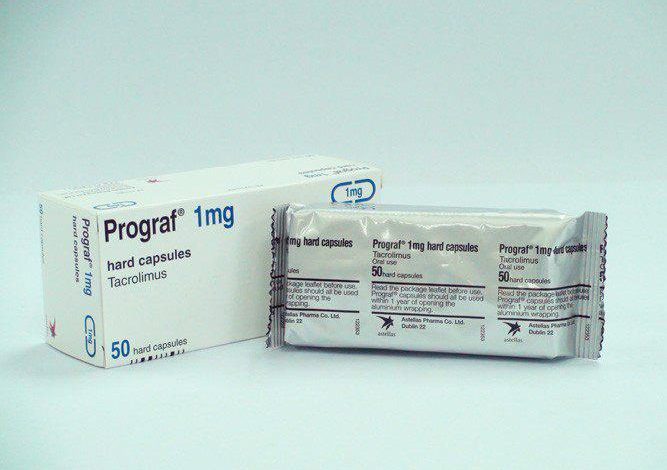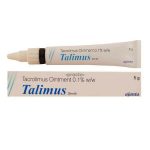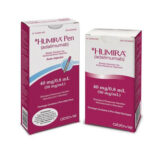Tacrolimus: Uses, How it Works, How Long it Stays, Side Effects

What is Tacrolimus?
Tacrolimus belongs to a class of medications known as immunosuppressants. It works by decreasing the activity of the immune system to prevent it from attacking the transplanted organ. Tacrolimus is used together with other medicines to prevent the body from rejecting a transplanted organ (eg, kidney, liver, heart, or lung). This medicine may be used with steroids, azathioprine, basiliximab, or mycophenolate mofetil. Tacrolimus belongs to a group of medicines known as immunosuppressive agents.
When a patient receives an organ transplant, the body’s white blood cells will try to get rid of (reject) the transplanted organ. Tacrolimus works by suppressing the immune system to prevent the white blood cells from trying to get rid of the transplanted organ.
Tacrolimus is a very strong medicine. It can cause side effects that can be very serious, such as kidney problems. It may also decrease the body’s ability to fight infections. You and your doctor should talk about the benefits of this medicine as well as the risks of using it.
This medicine is available only with your doctor’s prescription.
This product is available in the following dosage forms:
• Tablet, Extended Release
• Capsule
• Capsule, Extended Release
• Granule
How is Tacrolimus used?
Tacrolimus comes as a capsule, granules for oral suspension (to be mixed with liquid), an extended-release (long-acting) capsule, and an extended-release tablet to take by mouth. The immediate-release capsules (Prograf) and oral suspension (Prograf) are usually taken twice a day (12 hours apart). You may take the immediate-release capsules and oral suspension either with or without food, but be sure to take it the same way each time. The extended-release capsules (Astagraf XL) or extended-release tablets (Envarsus XR) are usually taken every morning on an empty stomach at least 1 hour before breakfast or at least 2 hours after breakfast. Take tacrolimus at the same time(s) every day. Follow the directions on your prescription label carefully, and ask your doctor or pharmacist to explain any part you do not understand. Take tacrolimus exactly as directed. Do not take more or less of it or take it more often than prescribed by your doctor.
If you are taking the granules for oral suspension, you will need to mix it with room temperature water before use. Place 1 to 2 tablespoons (15 to 30 milliliters) of water into a cup containing the granules. Mix the contents and then immediately take the mixture by mouth from the cup or with an oral syringe; do not save the mixture for a later time. The granules will not completely dissolve. If any of the mixtures remains, add 1 to 2 tablespoons (15 to 30 milliliters) of water to the mixture and immediately take it.
Swallow the extended-release capsules and extended-release tablets whole with water; do not split, chew, or crush them. Do not open the immediate-release capsules,
Your doctor will monitor you carefully and adjust your dose as needed. Talk to your doctor often about how you are feeling during your treatment. Ask your doctor if you have any questions about how much tacrolimus you should take.
Different tacrolimus products release the medication differently in your body and cannot be used interchangeably. Only take the tacrolimus product prescribed by your doctor and do not switch to a different tacrolimus product unless your doctor says that you should.
Tacrolimus can only prevent rejection of your transplant as long as you are taking the medication. Continue to take tacrolimus even if you feel well. Do not stop taking tacrolimus without talking to your doctor.
How long does tacrolimus stay in your system?
The half-life of tacrolimus is about 2 days. The half-life of a drug is the time it takes for the amount of a drug’s active substance in your body to reduce by half. This depends on how the body processes and gets rid of the drug. It can vary from a few hours to a few days, or sometimes weeks.
Most drugs will have been eliminated after 4 to 5 half-lives. Thus, it follows that after 4 to 5 half-lives, the plasma concentrations of a given drug will be below a clinically relevant concentration and thus will be considered eliminated. Given that the half-life of tacrolimus is two days most of the drug will have been eliminated from your system after about 10 days.
What are the side effects of tacrolimus?
Tacrolimus may cause side effects. Tell your doctor if any of these symptoms are severe or do not go away:
• headache
• diarrhea
• constipation
• nausea
• vomiting
• heartburn
• stomach pain
• loss of appetite
• difficulty falling asleep or staying asleep
• dizziness
• weakness
• back or joint pain
• burning, numbness, pain, or tingling in the hands or feet
Some side effects can be serious. If you experience any of the following symptoms, call your doctor immediately:
• decreased urination
• pain or burning on urination
• shortness of breath, hives, rash, or itching
• pale skin, shortness of breath, or fast heartbeat
• tiredness; weight gain; swelling of the arms, hands, feet, ankles, or lower legs; or shortness of breath
• unusual bleeding or bruising
• seizures, vision changes, headache, confusion, or uncontrollable shaking of a part of the body
• coma (loss of consciousness for a period of time)
Tacrolimus may cause other side effects. Call your doctor if you have any unusual problems while you are taking this medication. If you experience a serious side effect, you or your doctor may send a report to the Food and Drug Administration’s (FDA) MedWatch Adverse Event Reporting program online (http://www.fda.gov/Safety/MedWatch) or by phone (1-800-332-1088).
What drugs can interact with tacrolimus?
Although certain medicines should not be used together at all, in other cases two different medicines may be used together even if an interaction might occur. In these cases, your doctor may want to change the dose, or other precautions may be necessary. When you are taking this medicine, it is especially important that your healthcare professional know if you are taking any of the medicines listed below. The following interactions have been selected on the basis of their potential significance and are not necessarily all-inclusive.
Using this medicine with any of the following medicines is not recommended. Your doctor may decide not to treat you with this medication or change some of the other medicines you take.
• Bepridil
• Cisapride
• Dronedarone
• Fluconazole
• Lefamulin
• Mesoridazine
• Mifepristone
• Nelfinavir
• Pimozide
• Piperaquine
• Posaconazole
• Ritonavir
• Saquinavir
• Sparfloxacin
• Terfenadine
• Thioridazine
• Ziprasidone
Using this medicine with any of the following medicines is usually not recommended, but may be required in some cases. If both medicines are prescribed together, your doctor may change the dose or how often you use one or both of the medicines.
• Abametapir
• Aceclofenac
• Acemetacin
• Adenovirus Vaccine, Live
• Alefacept
• Alfuzosin
• Amiodarone
• Amisulpride
• Amitriptyline
• Amlodipine
• Amprenavir
• Amtolmetin Guacil
• Anagrelide
• Apomorphine
• Aprepitant
• Aripiprazole
• Aripiprazole Lauroxil
• Armodafinil
• Arsenic Trioxide
• Asciminib
• Asenapine
• Aspirin
• Astemizole
• Atazanavir
• Avacopan
• Azithromycin
• Bacillus of Calmette and Guerin Vaccine, Live
• Bedaquiline
• Belzutifan
• Berotralstat
• Boceprevir
• Bosentan
• Bromfenac
• Bufexamac
• Buprenorphine
• Buserelin
• Cannabidiol
• Carbamazepine
• Caspofungin
• Celecoxib
• Cenobamate
• Ceritinib
• Chloramphenicol
• Chloroquine
• Chlorpromazine
• Cholera Vaccine, Live
• Choline Salicylate
• Ciprofloxacin
• Citalopram
• Clarithromycin
• Clofazimine
• Clomipramine
• Clonixin
• Clotrimazole
• Clozapine
• Cobicistat
• Colchicine
• Conivaptan
• Crizotinib
• Cyclobenzaprine
• Cyclosporine
• Dabrafenib
• Dalfopristin
• Darunavir
• Dasabuvir
• Dasatinib
• Degarelix
• Delamanid
• Delavirdine
• Dengue Tetravalent Vaccine, Live
• Desipramine
• Deslorelin
• Deutetrabenazine
• Dexamethasone
• Dexibuprofen
• Dexketoprofen
• Diclofenac
• Diflunisal
• Diltiazem
• Dipyrone
• Disopyramide
• Dofetilide
• Dolasetron
• Domperidone
• Donepezil
• Doxepin
• Droperidol
• Droxicam
• Ebastine
• Echinacea
• Efavirenz
• Elbasvir
• Eliglustat
• Eluxadoline
• Encorafenib
• Entrectinib
• Enzalutamide
• Erdafitinib
• Eribulin
• Erythromycin
• Escitalopram
• Eslicarbazepine Acetate
• Esomeprazole
• Etodolac
• Etofenamate
• Etoricoxib
• Etravirine
• Famotidine
• Felbamate
• Felbinac
• Fenoprofen
• Fentanyl
• Fepradinol
• Feprazone
• Fexinidazole
• Fingolimod
• Flecainide
• Floctafenine
• Flufenamic Acid
• Fluoxetine
• Flurbiprofen
• Fluvoxamine
• Formoterol
• Fosamprenavir
• Fosaprepitant
• Foscarnet
• Fosnetupitant
• Fosphenytoin
• Fostemsavir
• Galantamine
• Gatifloxacin
• Gemifloxacin
• Glasdegib
• Gonadorelin
• Goserelin
• Granisetron
• Grazoprevir
• Halofantrine
• Haloperidol
• Histrelin
• Hydroquinidine
• Hydroxychloroquine
• Hydroxyzine
• Ibuprofen
• Ibuprofen Lysine
• Ibutilide
• Idelalisib
• Iloperidone
• Imatinib
• Imipramine
• Indinavir
• Indomethacin
• Infliximab
• Influenza Virus Vaccine, Live
• Inotuzumab Ozogamicin
• Isavuconazonium Sulfate
• Itraconazole
• Ivabradine
• Ivacaftor
• Ivosidenib
• Ketoconazole
• Ketoprofen
• Ketorolac
• Lanreotide
• Lapatinib
• Lenvatinib
• Letermovir
• Levamlodipine
• Levofloxacin
• Lofexidine
• Lomitapide
• Lopinavir
• Lorlatinib
• Lornoxicam
• Loxoprofen
• Lumacaftor
• Lumefantrine
• Lumiracoxib
• Macimorelin
• Measles Virus Vaccine, Live
• Meclofenamate
• Mefenamic Acid
• Mefloquine
• Meloxicam
• Methadone
• Methotrimeprazine
• Metoclopramide
• Mibefradil
• Mirtazapine
• Mitotane
• Mizolastine
• Mobocertinib
• Modafinil
• Moricizine
• Morniflumate
• Moxifloxacin
• Mumps Virus Vaccine, Live
• Nabumetone
• Nafarelin
• Nafcillin
• Naproxen
• Nefazodone
• Nepafenac
• Netupitant
• Nevirapine
• Nicardipine
• Niflumic Acid
• Nilotinib
• Nimesulide
• Nimesulide Beta Cyclodextrin
• Norfloxacin
• Octreotide
• Ofloxacin
• Ombitasvir
• Omeprazole
• Ondansetron
• Osilodrostat
• Osimertinib
• Oxaliplatin
• Oxaprozin
• Oxcarbazepine
• Oxyphenbutazone
• Ozanimod
• Palbociclib
• Paliperidone
• Panobinostat
• Papaverine
• Parecoxib
• Paritaprevir
• Paroxetine
• Pasireotide
• Pazopanib
• Pentamidine
• Perphenazine
• Phenobarbital
• Phenylbutazone
• Phenytoin
• Piketoprofen
• Pimavanserin
• Pipamperone
• Piroxicam
• Pixantrone
• Poliovirus Vaccine, Live
• Ponesimod
• Potassium Phosphate
• Prednisone
• Primidone
• Probucol
• Procainamide
• Prochlorperazine
• Proglumetacin
• Promethazine
• Propafenone
• Propionic Acid
• Propyphenazone
• Proquazone
• Protriptyline
• Quetiapine
• Quinidine
• Quinine
• Quinupristin
• Ranitidine
• Ranolazine
• Ribociclib
• Rifabutin
• Rifampin
• Rifapentine
• Risperidone
• Rofecoxib
• Rotavirus Vaccine, Live
• Rubella Virus Vaccine, Live
• Salicylic Acid
• Salsalate
• Schisandra sphenanthera
• Selpercatinib
• Sertindole
• Sertraline
• Sevoflurane
• Siponimod
• Sirolimus
• Smallpox Vaccine
• Sodium Phosphate
• Sodium Phosphate, Dibasic
• Sodium Phosphate, Monobasic
• Sodium Salicylate
• Solifenacin
• Sorafenib
• Sotalol
• Sotorasib
• Sulindac
• Sulpiride
• Sultopride
• Sunitinib
• Tamoxifen
• Telaprevir
• Telavancin
• Telithromycin
• Tenoxicam
• Tetrabenazine
• Tiaprofenic Acid
• Tofacitinib
• Tolfenamic Acid
• Tolmetin
• Tolterodine
• Toremifene
• Trazodone
• Triclabendazole
• Trimipramine
• Triptorelin
• Tucatinib
• Typhoid Vaccine, Live
• Valdecoxib
• Vandetanib
• Vardenafil
• Varicella Virus Vaccine, Live
• Vemurafenib
• Venlafaxine
• Verapamil
• Vilanterol
• Vinflunine
• Voclosporin
• Voriconazole
• Vorinostat
• Voxelotor
• Yellow Fever Vaccine
• Zoster Vaccine, Live
• Zotepine
• Zuclopenthixol
Using this medicine with any of the following medicines may cause an increased risk of certain side effects, but using both drugs may be the best treatment for you. If both medicines are prescribed together, your doctor may change the dose or how often you use one or both of the medicines.
• Aluminum Carbonate, Basic
• Aluminum Hydroxide
• Aluminum Phosphate
• Danazol
• Dihydroxyaluminum Aminoacetate
• Dihydroxyaluminum Sodium Carbonate
• Ertapenem
• Lansoprazole
• Magnesium Carbonate
• Magnesium Hydroxide
• Magnesium Oxide
• Magnesium Trisilicate
• Nifedipine
• Tigecycline
Other Interactions
Certain medicines should not be used at or around the time of eating food or eating certain types of food since interactions may occur. Using alcohol or tobacco with certain medicines may also cause interactions to occur. The following interactions have been selected on the basis of their potential significance and are not necessarily all-inclusive.
Using this medicine with any of the following is usually not recommended, but may be unavoidable in some cases. If used together, your doctor may change the dose or how often you use this medicine or give you special instructions about the use of food, alcohol, or tobacco.
• Ethanol
• Grapefruit Juice
Other Medical Problems
The presence of other medical problems may affect the use of this medicine. Make sure you tell your doctor if you have any other medical problems, especially:
• Congestive heart failure or
• Diabetes or
• Heart disease or
• Heart rhythm problems (e.g, QT prolongation), or
• Hyperkalemia (high potassium in the blood) or
• Hypertension (high blood pressure) or
• Myocardial hypertrophy (heart is larger than normal), history of or
• Paresthesia (numbness or tingling in the hands, arms, legs, or feet), history of or
• Seizures (convulsions), history of or
• Tremors—Use with caution. May make these conditions worse.
• Cystic fibrosis—May require a higher dose for patients with this condition.
• Infection, active (eg, bacteria, fungus, or virus)—May decrease your body’s ability to fight an infection.
• Kidney disease or
• Liver disease—Use with caution. The effects may be increased because of the slower removal of the medicine from the body.
You can find useful information on Foods to Avoid While on Tacrolimus





